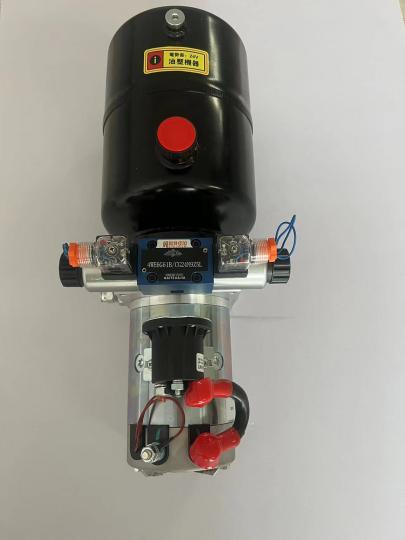Oct . 30, 2024 15:45 Back to list
force in hydraulic cylinder company
Understanding Force in Hydraulic Cylinders A Key Component for Industrial Applications
Hydraulic cylinders are integral components in numerous industrial applications, providing powerful and precise linear motion. The force output of a hydraulic cylinder is crucial for its operation and is determined by several key factors. This article will delve into how force is generated in hydraulic cylinders, the calculations involved, and the significance of this force in various industries.
Hydraulic cylinders operate based on Pascal's principle, which states that pressure applied to a confined fluid is transmitted undiminished in all directions
. The force generated by a hydraulic cylinder can be calculated using the formula\[ \text{Force} = \text{Pressure} \times \text{Area} \]
Where - Force is measured in pounds (lb) or Newtons (N), - Pressure is measured in pounds per square inch (psi) or Pascals (Pa), - Area is the surface area of the piston in square inches or square meters.
force in hydraulic cylinder company

The area of the piston is essential, as the larger the piston, the greater the force produced for the same amount of hydraulic pressure. For instance, a cylinder with a piston area of 10 square inches and an operating pressure of 2,000 psi would generate a force of 20,000 lbs. This principle underscores the importance of selecting the right hydraulic cylinder for specific applications, particularly when high force is required.
Applications of hydraulic cylinders span a wide range of industries, including construction, manufacturing, agriculture, and automotive sectors. In construction, hydraulic cylinders are vital in operating heavy machinery like excavators and cranes, enabling them to lift and move substantial loads with ease. Similarly, in manufacturing, hydraulic presses utilize these cylinders to shape materials, demonstrating their versatility and strength.
The effectiveness of hydraulic cylinders is not solely based on the force they can exert. Factors such as speed, efficiency, and control play significant roles in their performance. Variations in hydraulic fluid viscosity, cylinder design, and system maintenance can affect the responsiveness and force output of hydraulic systems. Therefore, companies specializing in hydraulic cylinder technology continually innovate to enhance efficiency and durability.
In recent years, the push for sustainability has led to advancements in hydraulic technology aimed at reducing energy consumption and improving the overall efficiency of hydraulic systems. Companies are now exploring more eco-friendly hydraulic fluids and materials that minimize environmental impact while maintaining the performance expected in industrial applications.
In conclusion, understanding the force in hydraulic cylinders is critical for various applications across multiple industries. As a fundamental component of hydraulic systems, the force generated by these cylinders plays a pivotal role in determining the effectiveness of machinery and tools. By grasping the principles of hydraulic force and keeping abreast of technological advancements, companies can optimize their operations, ensuring they meet both efficiency and environmental standards. Whether lifting heavy loads on a construction site or shaping metal in a factory, hydraulic cylinders remain indispensable in the landscape of modern engineering and industry.
-
Fork Lift Power Units - Hebei Shenghan | Efficiency, Reliability
NewsJul.13,2025
-
1.5-Ton Turbocharged Cylinder-Hebei Shenghan|Hydraulic Solution,Energy Efficiency
NewsJul.13,2025
-
Auto Hoist Power Units-Hebei Shenghan|Efficiency&Industrial Lifting
NewsJul.13,2025
-
Double Acting Power Units-Hebei Shenghan|Hydraulic Solutions,Industrial Efficiency
NewsJul.13,2025
-
1.5 Ton Lifting Cylinder 70/82-40-290-535 - High-Performance Hydraulic Solution | Hebei Shenghan
NewsJul.13,2025
-
Fork Lift Power Units - Hebei Shenghan | Efficiency&Reliability
NewsJul.13,2025
